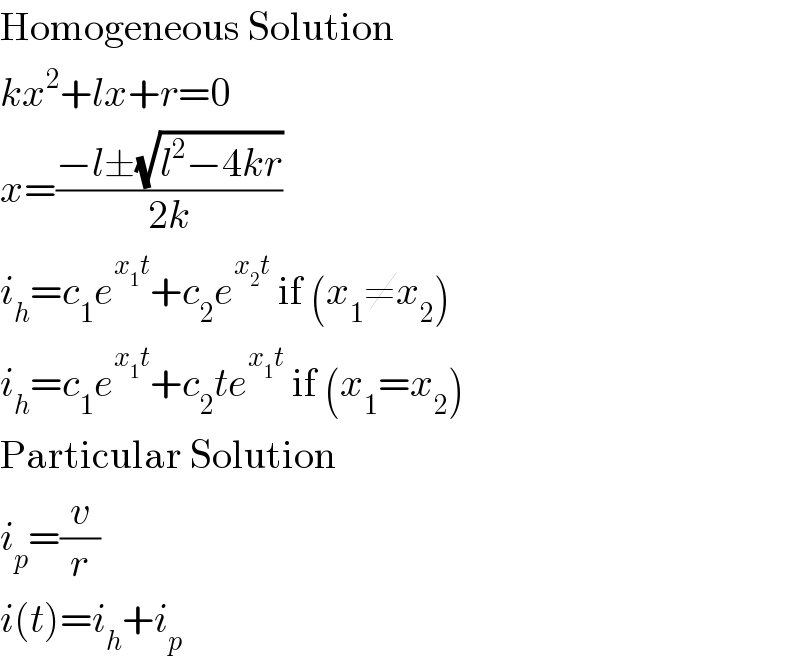Question Number 757 by 123456 last updated on 07/Mar/15

$${k}\frac{{d}^{\mathrm{2}} {i}}{{dt}^{\mathrm{2}} }+{l}\frac{{di}}{{dt}}+{ri}={v} \\ $$$${i}\left(\mathrm{0}\right)=\mathrm{0} \\ $$$${i}'\left(\mathrm{0}\right)=\mathrm{0} \\ $$$${k},{l},{r},{v}\:{are}\:{constants} \\ $$
Commented by prakash jain last updated on 08/Mar/15

$$\mathrm{Homogeneous}\:\mathrm{Solution} \\ $$$${kx}^{\mathrm{2}} +{lx}+{r}=\mathrm{0} \\ $$$${x}=\frac{−{l}\pm\sqrt{{l}^{\mathrm{2}} −\mathrm{4}{kr}}}{\mathrm{2}{k}} \\ $$$${i}_{{h}} ={c}_{\mathrm{1}} {e}^{{x}_{\mathrm{1}} {t}} +{c}_{\mathrm{2}} {e}^{{x}_{\mathrm{2}} {t}} \:\mathrm{if}\:\left({x}_{\mathrm{1}} \neq{x}_{\mathrm{2}} \right) \\ $$$${i}_{{h}} ={c}_{\mathrm{1}} {e}^{{x}_{\mathrm{1}} {t}} +{c}_{\mathrm{2}} {te}^{{x}_{\mathrm{1}} {t}} \:\mathrm{if}\:\left({x}_{\mathrm{1}} ={x}_{\mathrm{2}} \right) \\ $$$$\mathrm{Particular}\:\mathrm{Solution} \\ $$$${i}_{{p}} =\frac{{v}}{{r}} \\ $$$${i}\left({t}\right)={i}_{{h}} +{i}_{{p}} \\ $$
